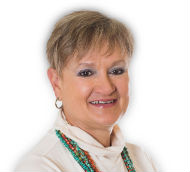Top Elder Law And Estate Planning Attorney Michele Ungvarsky Dispels Medicaid Spend Down Myths – Las Cruces NM
Fears and myths surrounding Medicaid and its impact on people are addressed by Michele Ungvarsky, founder of E-Law in Las Cruces, NM. For more information please visit https://www.estradalawpc.com

Las Cruces, NM, United States – March 30, 2021 /MM-REB/ —
In a recent interview Michele Ungvarsky, founder of E-Law in Las Cruces, NM revealed fears and myths surrounding Medicaid and its impact on you personally.
For more information please visit https://www.estradalawpc.com
“There are many myths about Medicaid and how it can affect you financially,” commented Ungvarsky.
A big misunderstanding is that a person has to dispose of their assets to claim Medicaid. She emphasized individuals and married couples can own some property and still qualify.
Exemptions include having personal property, household furnishings, one vehicle, burial plots, pre-paid funerals, life estates in real property, trade or business property essential to self-support, and assets that can’t be converted to cash.
The family residence is also exempt for married couples if the healthy spouse is still living there. For a single individual, his or her home may be exempt under some circumstances, she reassured.
Ungvarsky said that while transfers of assets between spouses are exempt, transfers to persons other than spouses usually could incur penalties and periods of ineligibility for Medicaid. “The more money or property that is given away, the longer a person will be ineligible for Medicaid.”
Medicaid assesses what gifts have been made in the previous five years before application, and if a transfer (gift) is found, then divestment penalties are imposed. However, she urged people to consult an elder law attorney because of the subject’s complexity and rule changes.
She also dismissed myths such as spending down assets on medical or nursing home bills. “One reason nursing homes may want clients to believe this myth is because the private pay rates for nursing home residency are sometimes more than the Medicaid rates,” she went on.
“People should remember that it’s never too late to start Medicaid Planning. If planning was not done before the person entered a nursing home, some assets could still be protected.”
Ungvarsky cautioned that the belief a person could be eligible for Medicaid by putting their money in their spouse’s name or keeping all their property when a spouse gets Medicaid is not valid. “When a married person applies for Medicaid, the assets of both spouses are considered. If the non-applicant spouse does not provide information about his or her assets, the Medicaid application could be denied.”
Ungvarsky said: “Assets owned by a revocable living trust are counted when determining financial eligibility and are vulnerable to nursing homes costs. However, other types of trusts may be used to protect assets.
A wrongly held belief is that you don’t have to disclose assets to Medicaid. “All assets have to be disclosed, including savings bonds which do not produce current income,” she countered.
Ungvarsky said it was untrue that all an applicant spouse’s income must be used to pay for nursing home care. “The institutionalized spouse is entitled to at least $40 per month on a personal needs allowance, and they can also pay for medical expenses not covered by Medicaid, including health insurance premiums for Medicare and private health insurance.”
She also advised a person who enters a nursing home as a private paying resident will have to wait until a Medicaid bed becomes available to qualify for the aid. Due to Medicaid’s complexity, Ungvarsky urged people to speak to an Elder Law specialist for further information,
Source: http://RecommendedExperts.biz
Contact Info:
Name: Michele Ungvarsky
Email: Send Email
Organization: E-Law, PC
Address: 1340 Picacho Hills Dr, Las Cruces, NM 88007
Phone: 575-556-2462
Website: https://www.estradalawpc.com
Source: MM-REB
Release ID: 89002421